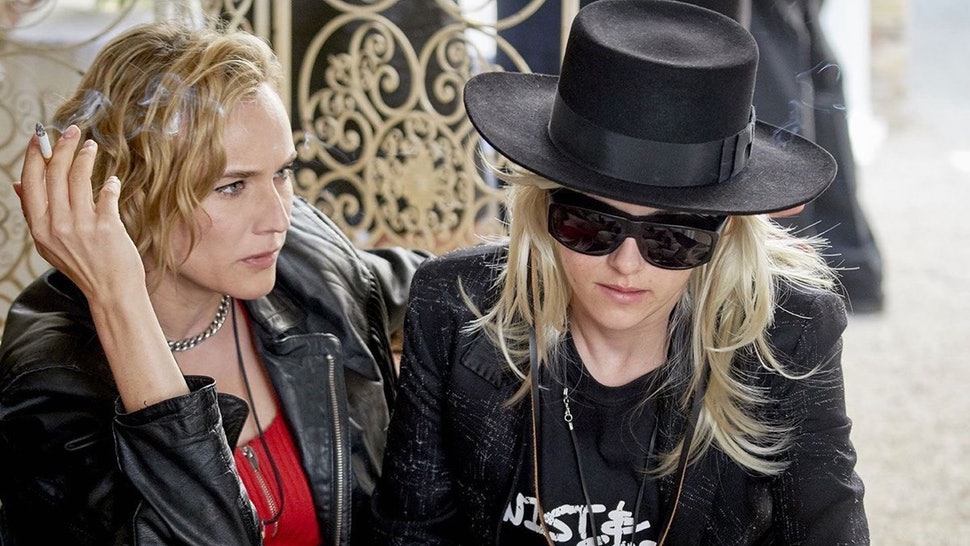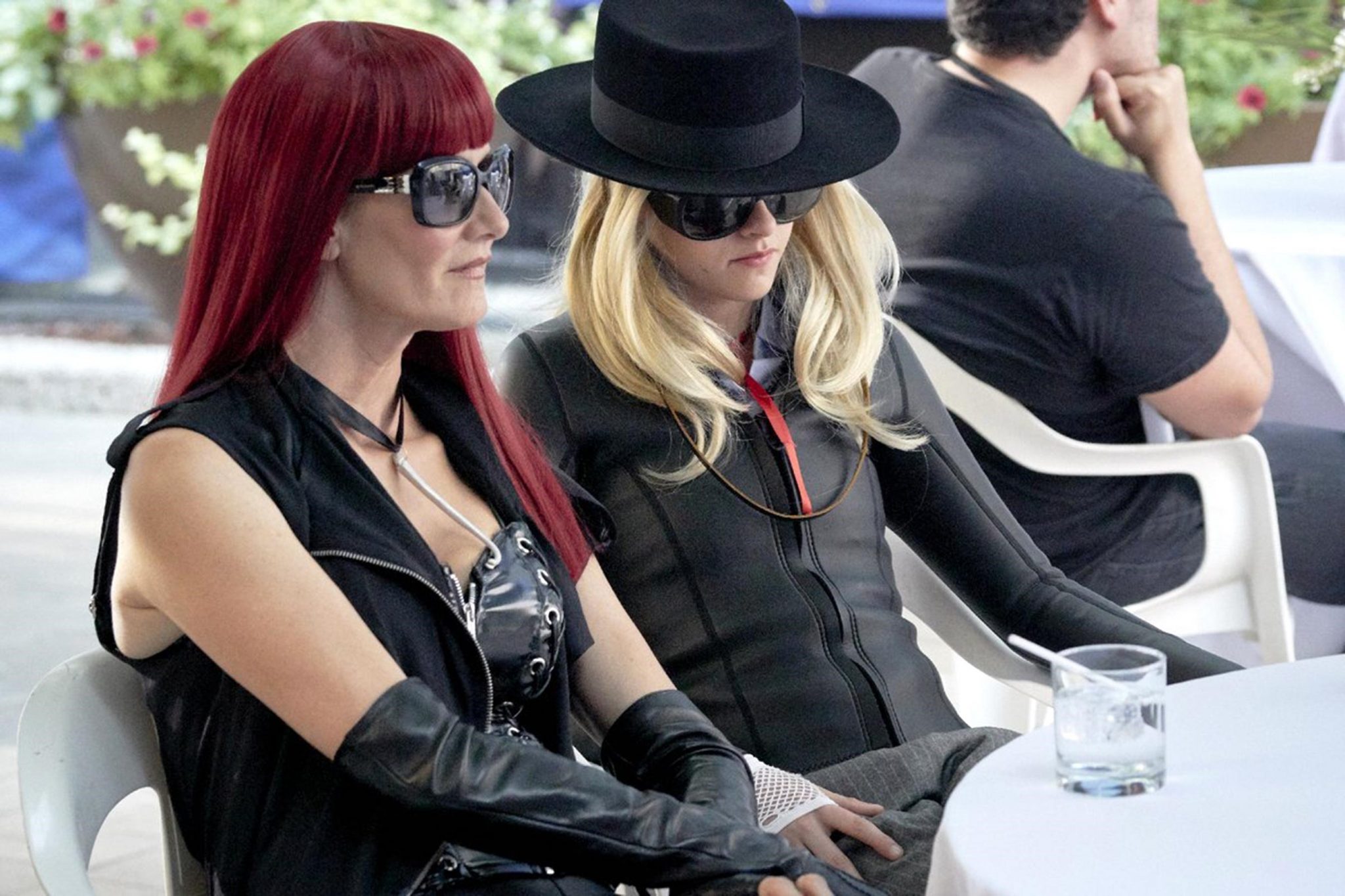Oh, wow, did JT LeRoy catch me all kinds of off guard. Hrmm. I guess I mean that in several various and sundry ways. I should come in again.
The books “Sarah,” and “The Heart Is Deceitful Above All Things: Stories” written by JT LeRoy blew my mind when they were originally published at the turn of the millennium. The flickering reel to reel images projected against the cinder-block wall by LeRoy’s stories were of a world I had no idea existed. JT wrote with a heart and a passion that cut like rusty straight razor, and bled you with not so much as a backward glance. And soon after came James Fry’s “A Million Little Pieces,” which also skewered its readers without apology or a ‘by your leave.’
Growing up, having spent most of my time reading postmodernists and post-post-modernists (like the Young White Guys consisting of David Foster Wallace, Jonathan Franzen, Dave Eggers, Rick Moody, and the like. Which were just basically all Ezra Pounds in his prime.) I found this new genre of hard hitting autobiographical real-life-car-crashes (autobiographical-torture-porn?) a wholly different world entirely. At least for me anyway. All I know is that these books seemed to snap my neck they whipsawed my head so violently while reading them. They were like crack after being used to a 16% Bordeaux. But when they all started toppling like dominoes after it began to come out that these autobiographies were less than autobiographical, they immediately began to lose their luster. And yet, a part of me began thinking, really, what is the difference between a genre classification printed on the spine. Which immediately meant that JT LeRoy and James Fry now were on a different vanguard, of a different trend…and that was of the faux-autobiography. (Autobiografaux?) So when both LeRoy and Fry were found out to be fraudsters, schlepping made up “raw reality” it had an impact on the entire literary community, including Oprah (the Queen of the book clubs) who felt betrayed by Fry. And suddenly LeRoy and Fry fell from grace. And like “his” writing, the movie LeRoy caught me off guard all over again.
And this past week, I was caught off guard all over again with the release of Justin Kelly’s new movie, entitled JT LeRoy. If you are an avid THiNC. reader, you may well remember Justin Kelly from his mindjobby movie, Welcome the Stranger. This time, Kelly is working with Kristen Stewart and Laura Dern – two Hollywood icons, and the results are fantastic. (errrrrrewwwwt – record scratch…Kristen Stewart, of Twilight fame?, Hollywood icon?!?! What are you NUTS MAN?! No. I am not nuts, and as evidence, I gladly refer you to Personal Shopper, and Clouds of Sils Maria. Two of the best movies I’ve discussed on this little corner of the web. Which is a verifiable fact.)
If you know the story of any of these fraudsters this is a fairly paint by numbers movie. But the one thing that this story has that others don’t, is that LeRoy didn’t exist. And in this story the hoax includes the invention of a flesh and blood author as well. It’s a crazy story in that this is the real autobiographical story that can’t be made up. (Oh, that’s an idea, create a faux-real story about an author caught making a fake story? Yeah, a story complete with supporting documentation and made up evidences to the author’s dis-ingenuousness would be fascinating. And the resulting meta-teeth gnashing and discussion would instantly be a truly deep rabbit-hole dive.)
The Meta-Faux Conversation
Normally, my posts turn to the details of the movie. But, as we all probably watched as these events unfolded back in the early aughts, I am more interested in the larger story that happens here in these situations. Situations that usually go something like this – an author writes glorious prose about their real, gritty and horrible, life experiences. A publisher picks up the novel, and begins pitching it to the world as a diamond in the rough. A true marvel, that the author is a literary wünderkind in the making. How could they have ever written such glorious and poetic turns of phrase, while having been schooled solely on the streets? The book is published to wide acclaim. Book clubs, and celebrities tout the novel. Movie rights are sold. Book club walk-throughs are written and sold. The novel sells over 5 million units, a literal juggernaut. But then the story starts to crack. Details of the author’s fake life begins to fall apart. And the unraveling, which started with one detail about the author’s attending school somewhere they say they weren’t, or about their citizenship documents, quickly picks up steam as the world has caught the scent. And then, the once hero of the literary world is now pilloried widely and without restraint. And, as the building burns down around the publisher, they make comments like, “Right now the media seems to be negatively attacking the messenger instead of concentrating on promoting the positive message of redemption…In terms of the benefit to readers as a self-help book, the message is the key issue, not the minor story details. One needs to stay focused on what the real message is—overcoming addiction.” Which Fry’s publisher attempted as an attempted cauterization of the sucking chest wound that became the Million Little Pieces conflagration.
But then, this story shifts. It morphs from a story of a book about a rough life, to a story of a person falsifying a story. Which, then begins inspiring screenplay writers to write about the author, creating a character, and the histrionics necessary to keep the truth at bay. Which is what JT LeRoy is all about. It isn’t about the amazing novel Sarah and how will written it is. It isn’t about Savannah Knoop or her short story called Baby, or the collections of stories she wrote in the book, “The Heart Is Deceitful Above All Things.” And as a result, the story is more about the deceit of this transaction then about the writing itself. But is that because we give autobiographies a pass? Maybe it’s a reality hall pass that we don’t give to fiction? Because we can’t control the events in our life. I mean, the fact that you were in the Buchenwald sub-camp Schlieben concentration camp means, heck ya, you get a pass. But were you really in Buchenwald sub-camp Schlieben? And did you really get apples from that girl in town, who passed them through the fence to you when the guard wasn’t looking? And, oh, by the way, did you really coincidentally meet her again later in life and get married? REALLY? No one would lie about a story as magical as all that, right? Oh, I’m sorry, here’s a link for you. Wait, what? Oprah got duped again after getting busted by James Fry? Unbelievable.
Or what about the book entitled Love and Consequences by Margaret B. Jones? In 2008, a story about a part American Indian foster child who eventually got embroiled in the gangs of southern Los Angeles nabbed a publisher and immaculate reviews that hoovered their way across the literary ecosystem. But eventually Margaret Seltzer was discovered to be a hoax. Instead of living in the gang riddled parts of L.A., she actually lived in the uber affluent Sherman Oaks. Oh, and she attended private school growing up. Because, of course, she did. It was eventually Seltzer’s sister that uncovered the deception when she saw a New York Times profile about her sister. “I thought it was an opportunity to put a voice to people who people don’t listen to.” And ultimately it caused the publisher to pulp the book.
Heck, the book Misha is another great example. Misha: A Memoire of the Holocaust Years by Misha Defonseca. The book was published in 1997, and it tells Misha’s story, and how she went looking for her Jewish parents at the young age of seven. They had been deported by the Nazis, and her search, which she did on foot, carried her more than 1,900 miles across Europe. And the details in the book were larger than life. Think wolves, the Warsaw Ghetto, and her murder of a German soldier. The book wasn’t very big here in America, but was a bestseller throughout Europe. Heck! It was made into a French film it was so big. But ten years later it came out that Defonseca was Catholic, not Jewish, and that she was actually attending school in Brussels during the time she said she was trekking across Europe. And yet, it was true that the Nazis had executed her parents, who, apparently, were members of the Belgian resistance. Talk about a worthy story to tell! It is unbelievable that Defonseca thought that her crazy, AND TRUE, story wasn’t good enough of a story to publish.

Fauxstian Bargains
Get it? Faux-Faustian…oh never mind. Look, it feels like the alternative is a different extreme, and a different problem entirely. Case in point is Karl Ove Knausgård – who wrote a six volume, 3,500 page intricately detailed autobiographical novel about his family. Absolutely no one in his family is accusing Knausgård of falsifying information, but they aren’t talking to him either. His entire family, and Karl himself, will admit that he made a Faustian bargain to parlay his family’s secrets (and his soul) for fame and publishing bonuses. Is this an OK extreme? That we, as a society are OK to strip mine a family, all under the guise of literary acclaim?
You can see that in all of the examples I’ve brought up, from Fry, to Knoop, all the way out to the other extreme of Knausgård, they are all searching for something big, and that is fame. Acclaim. Renowned. Heck, I’m giving them all the benefit of the doubt in not saying cold hard cash. But I wonder what it is about us that we will pay these authors to sell out their stories, sell out their families, sell out their souls to falsify bigger, and better, than their already enormous stories.
Think about this for a second. I promise you, your story, no matter how normal, or banal, is 100% publishable. You could probably even land a six figure deal…the only thing you have to promise me, the editor and publisher, is that you have to tell us everything. (There is a really really good movie script in here somewhere…) I want your unwhitewashed thoughts. I want your hatreds, your desperate desires. You may be classic, boring middle class boringness incarnate…but the thoughts, hurts, desires, are a fascinating panoply of complex colors. Better yet, if you’ve had an affair, an addiction, a murderous rage…but even your thoughts at the stoplight could be editorial gold. If, and only if, you are 100% honest. And that takes a level of fearlessness that almost no one can carry through with. And so when we see this autobiographies of individuals telling their stories, we stop and listen to this intrepid traveler.
But the Movie Man!
Oh, right. JT LeRoy. Just go watch it. I’m all a twist about it. Laura Dern and Kristen Stewart kill it in this crazy story. Where I ding the movie is in the fact that it maybe gives the pair too much of a pass. They definitely don’t deserve a pass at all. But they also can handle it too – the bright lights of scrutiny. But minus that, I learned a lot about how the situation developed, grew and then exploded. I really enjoyed the movie, mainly because I was so conflicted the entire time. What part do I play as a paying reader of books in the breaking of the Savannah Knoops of this world? Do I need to give Savannah a pass because she is a brilliant writer, or does that not matter? Should I be rooting for Savannah, or should I be hoping for her downfall? I was conflicted inside and out. And if you think this conversation is cut and dry, you haven’t thought about it long enough.
So, have you seen JT LeRoy yet? What do you think? What about the story itself and the actions of these two women? I am definitely not going to be throwing the first stone…that’s for sure. But feel free to let fly in the comments below if you think it’ll help.
Edited by, CY



